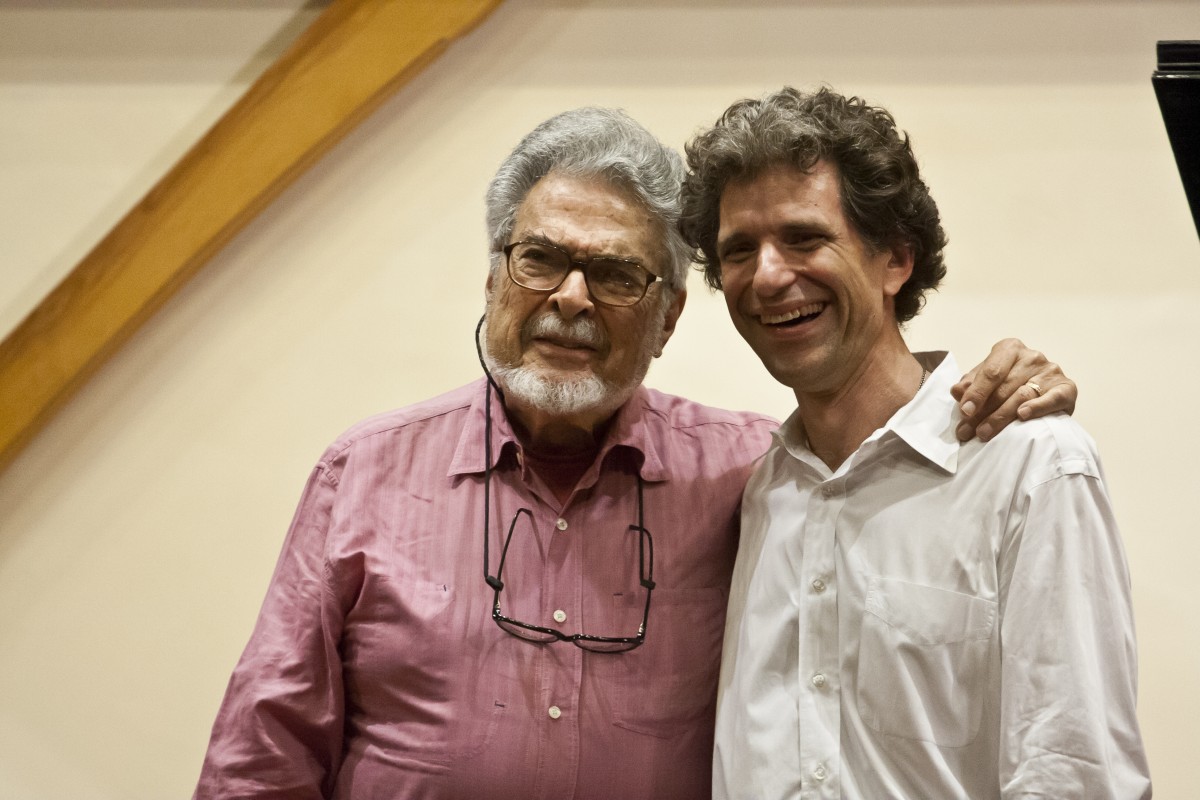"By the conservative calculus that governs the agendas of so many mainstream summer chamber music festivals, concerts like those at Yellow Barn shouldn’t really exist. And yet they do."
On August 2nd Jeremy Eichler visited Putney for our season finale and three days later this feature appeared in The Boston Globe:
Every music festival has its own myth of origins, some more modest than others. Back in the late 1960s, a New York-based cellist named David Wells began inviting his students and musical friends to gather in this small southern Vermont town for informal summer chamber music retreats. The tradition coalesced into Yellow Barn, a music festival named for the barn next to Wells’s farmhouse, where the concerts originally took place.
In this part of the country, a history like this one can easily be overshadowed. There were no visionary Russian conductors associated, nor any European musical luminaries fleeing the war. “Peter Grimes” did not receive its American premiere here. But some two decades after the event, I still recall attending a blazing performance of Bartok’s “Contrasts” in the mid-1990s, played in the rough-hewn old barn space with audience members dangling their feet over the edges of a loft. Nearby was a large and beautiful garden where, if memory serves, some of the participants’ food was grown that summer.
Wells retired in 2002 and passed the torch to the pianist Seth Knopp, who has overseen an era of both continuity and change at Yellow Barn. Early-career musicians and faculty members now come from across the country. Performances now take place in a more recently built concert space inspired by the intimacy of the old barn but with room for modern amenities. Artist residencies are now scheduled throughout the year, incubating new works and keeping up momentum well beyond the summer months.
But informality and modesty still work in the festival’s favor, keeping the focus on artistic substance. Celebrity artists who drive ticket sales elsewhere do not usually come to Yellow Barn (and when one happens to drop by, as on Saturday night, he is unannounced). The attendant helping you park your car may well have been a performer on the previous night’s program. And native blueberries top the vanilla ice cream served in drinking cups at intermission.
All of this said, these days, Yellow Barn’s not-so-secret draw for chamber music devotees is often its programming. Knopp seems to curate concerts for the benefit of his own musicians and for some idealized fantasy audience that is catholic in taste, fearless in curiosity, and possessed of an ear for both tradition and adventure. A casual flip through the summer’s program book gives you the idea, while also sparking a play of questions both serious and whimsical: Has Mozart’s D-minor Quartet ever shared a bill with works by composer-pipa player Gao Hong and Hanns Eisler? How do Bach, Boulez, and Philippe Hersant work together on a single concert? Why in all these years have I never heard a single work by André Boucourechliev (1925-1997) in live performance, and how will his “Archipel I” sound alongside Dvorak’s Sextet (Op. 48)? There is indeed a wonderful improbability to this whole endeavor. By the conservative calculus that governs the agendas of so many mainstream summer chamber music festivals, concerts like those at Yellow Barn shouldn’t really exist. And yet they do.
Saturday night’s season finale presented a characteristic mixture of old and new, beginning with Beethoven’s “Archduke” Trio in an attentive performance, elastic in phrasing and transparent in detail, by Luke Hsu (violin), Jonathan Dormand (cello), and Joseph Liccardo (piano). Right on its heels came George Benjamin’s Octet of 1978, an early and fearsomely precocious work written just after Benjamin had concluded his studies with Olivier Messiaen. Cast in a single capacious movement and scored for flute (here, Brook Ferguson), clarinet (Alan Kay), violin (Ari Isaacman-Beck), viola (Tegen Davidge), cello (Madeline Fayette), bass (Elizabeth Burns), percussion (Eduardo Leandro), and celesta (Mei Rui), the Octet demonstrates how the composer at just 18 years of age had the makings of a highly individual voice, one already marked by a striking timbral imagination. Saturday’s performance had a lucidity and dramatic tension that made it riveting.
Drawing out connections between teachers and students has been one of the summer’s loosely defined programming themes, so it was surely no coincidence that the Benjamin was followed by Messiaen’s own “Theme et Variations,” a searching and poetic work written in 1932 as a wedding present for the composer’s first wife. Knopp and violinist Mayumi Kanagawa aptly conveyed the score’s distilled intensity of expression and the diamond-like hardness of its surfaces. Next came a high-spirited account of “Five Seasons” by the Chinese-born American composer Lei Liang, in residence this summer at Yellow Barn. While its itinerary is partly inspired by ancient Chinese thought about the nature of the seasons, including a fifth season between summer and autumn, the piece also stands on its own without a program thanks to its virtuosic and innovative approach to bringing together a traditional instrument (pipa, here played by Gao) with string quartet (Suliman Tekalli and Zenas Hsu, violins; Xinyi Xu, viola; Frédéric Rosselet, cello).
The night ended with one last riff on the teacher-student theme by way of a surprise appearance from Knopp’s own teacher, pianist Leon Fleisher, who told a delighted audience that he had been “abducted in a Subaru from that little music camp down the road.” He was there to close the season and did just that, with a lyrical and glowing account of Jerome Kern’s “All the Things You Are,” in an arrangement for left hand by Stephen Prutsman.

Leon Fleisher and Seth Knopp (Photo: Zachary Stephens)
